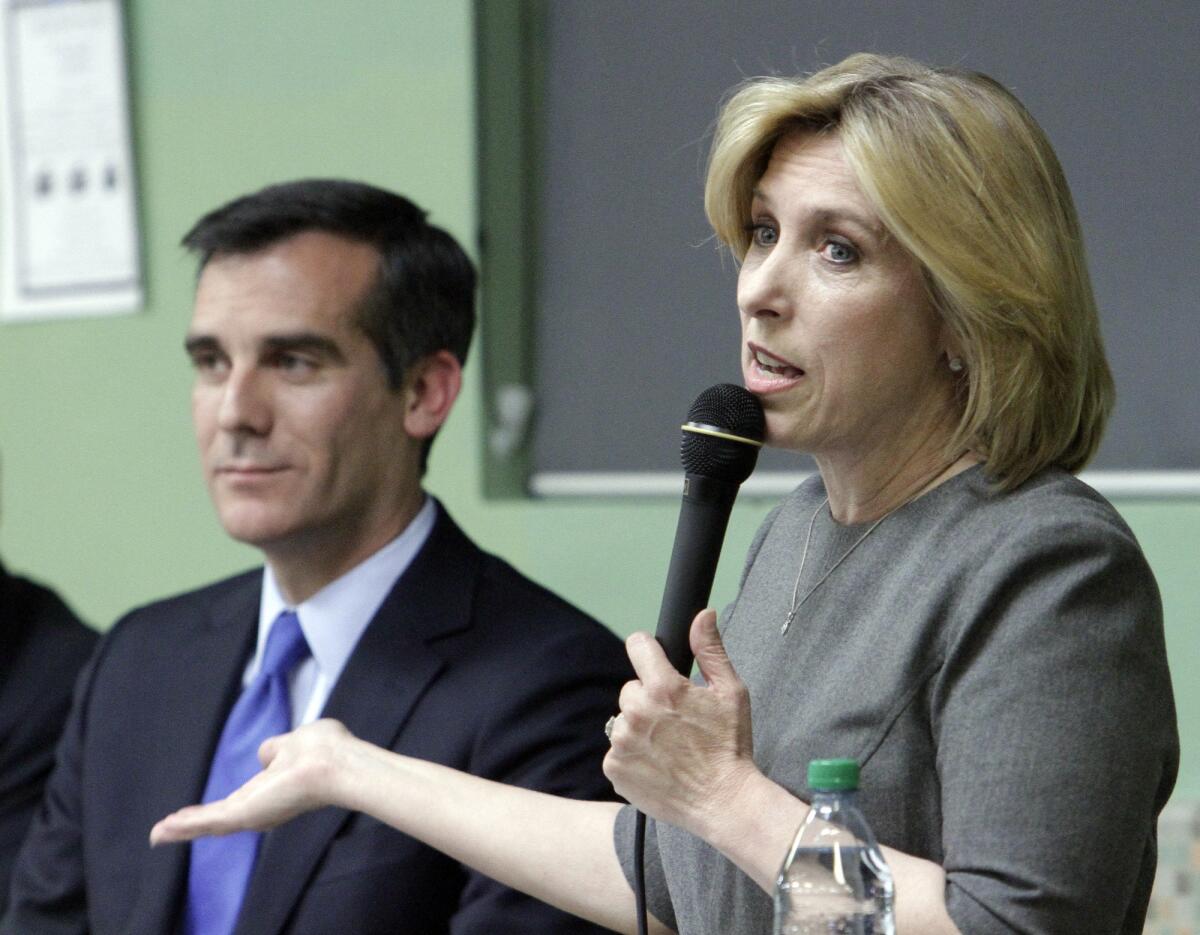L.A. Now Live: DWP union workers -- big donors, high pay

- Share via
Times reporter Jack Dolan will join L.A. Now Live at 9 a.m. Thursday to discuss his look at the pay of employees at the Los Angeles Department of Water and Power — and its union’s contributions to the mayor’s race.
Employees at the DWP, whose union is the single biggest contributor in the current mayoral race, earned average total pay of nearly $100,000 in 2011, according to a Times analysis of the most recent publicly available payroll data.
That’s more than 50% higher than the average total pay of all other city employees, The Times found. It’s also about 25% higher than employees at comparable public and private utilities, according to a report commissioned by the City Council last year.
The International Brotherhood of Electrical Workers, which represents the vast majority of employees at the DWP, has made itself a key player and a central issue in the campaign by giving $1.45 million to an independent effort to elect mayoral candidate Wendy Greuel. That has made the union by far the largest single source of cash in the race.
The DWP has released far less detailed and current data about employee salaries than other city agencies. This week, the union signaled it plans to go to court in an effort to further delay the release of salary information about individual DWP workers.
In 2011, the DWP’s $99,381 average total pay — which includes salary, overtime and a wide range of other compensation such as unused sick and vacation time and cost of living bonuses — covered more than 10,000 department employees from the highest-paid engineers to the lowest paid temps and clerks, according to The Times’ analysis.
The 2-year-old payroll snapshot showed General Manager Ron Nichols made $347,000. His five executive assistants averaged $198,000. Mechanics who install and repair power lines averaged $153,000. Service representatives who answer customer calls averaged $68,000.
The City Council-commissioned study last year found DWP workers received significantly higher compensation than those working at more than a dozen comparable utilities. Groundsmen and utility workers, for example, made 41% more and call center workers made 20% more, according to the report.
More to Read
Sign up for Essential California
The most important California stories and recommendations in your inbox every morning.
You may occasionally receive promotional content from the Los Angeles Times.










